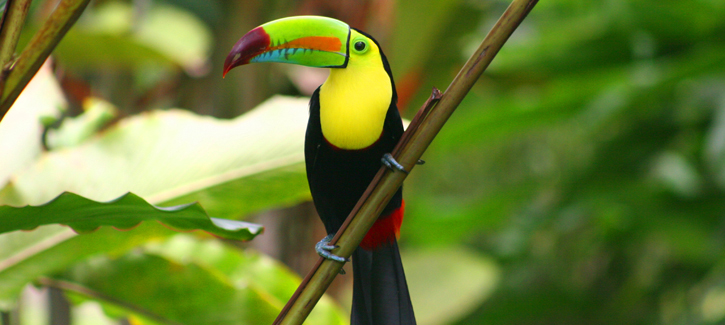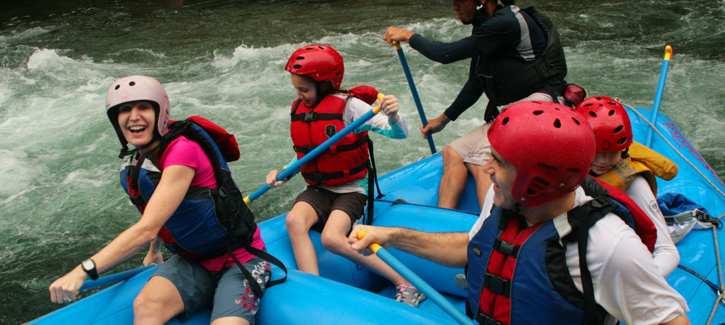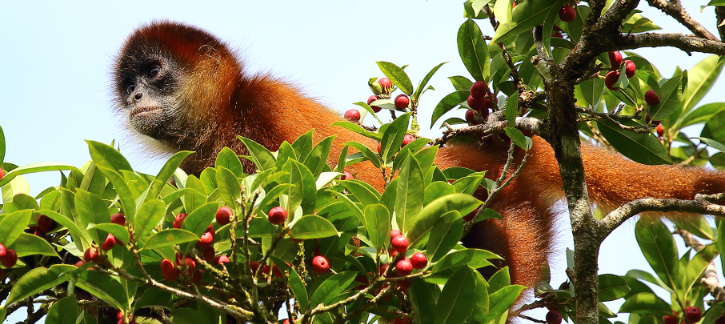What if I get sick?
What medication should I bring?
First of all we want to say that it’s unlikely that you will need it, but if you happen to get sick while you are in Costa Rica, we have top of the line medical care, hospitals and drug stores throughout the country.
We have staff that is also are available for emergencies 24/7. This is just a precaution, don’t worry about it; just put in somewhere that you won’t forget, like in your wallet with your driver’s license and then if you need it you’ll know where it is.
Be sure to be up to date also on your tetanus inoculation, but in case you won’t be able to do so; it is something you can easily get here if it becomes necessary.
Here are a few tips:
- Pre-existing conditions: It’s helpful for us to know if you have any pre-existing condition before you get here. That way when you let us know that you’re not well, we can brief the doctor before you speak with him.
- Let us know as soon as you start to feel bad. You will be in some remote areas, the sooner we know that you aren’t feeling well, the better positioned we will be to help you.
- Be careful with the sun: More people have changed their vacation plans because of sunburn than any other accident. The sun's ultra violet rays are much more direct and stronger in Costa Rica because it is only 10 degrees north of the equator. Many locations are at high altitudes which means you'll be exposed even more. You may not feel you're getting badly sunburned until it's too late. It can also happen in overcast conditions. Please use a minimum protection 15 sunscreen and/or wear a hat with a wide brim. Some people prefer long sleeves and long pants. They both work. If you're a person that doesn't get sunburned in the temperate zone please make sure to protect yourself in Costa Rica, you WILL get a sunburn here. Sunglasses are also recommended.
- Be careful with dehydration: After sun burn, dehydration is probably the next most frequent reason for interrupted vacations. While you are in Costa Rica you will require much more water than what you are used to. If you do not have to go to the water closet often, you are not drinking enough water. We recommend that you drink at least 8 – 8 oz. glasses of non-carbonated liquid every day. Especially when you’re hiking, keep you bottle on hand and sip continuously. Reduce the amount of things in your day pack and make room for more water! This is especially important if for children, keep an eye on them, and make sure they are drinking non-carbonated drinks and they are asking to stop for the restroom often.
- Stick to your medication schedule: To stay healthy while you are on vacation, it’s important that you stick to the medication schedule that you are currently on.
- When packing, be sure to bring enough of the medication you take on a daily basis for every day of your vacation, plus an additional amount sufficient for up to 6 more days.
- Severe Allergies: If you have severe allergies to anything, such as nuts, bee stings or shellfish for example, it’s very important that you carry your own Epinephrine auto-injector (EpiPen). Please be aware that EpiPens are not available in Costa Rica. If you forget it, don’t panic, we can put you in touch with a doctor that will recommend alternatives; it’s just that the alternatives are not as convenient as the EpiPen. Remember that your EpiPen won’t do much good from the bottom of your suitcase while you are out exploring. Be sure to put it in your pocket before excursions, and also to let your guide know where you’re carrying it.
- Dietary Restrictions:Be sure to let us know if you have any dietary restrictions that we should be aware of. Hotels and lodges in Costa Rica are quite good at providing special dishes, but a little advanced notices is much appreciated.
- CPAP: (Continuous positive airway pressure) Most of modern CPAPs operate with 110/125 Volts which is Standard in Costa Rica. The plug will work in all regular inlets at the hotels. You may need an extra inlet near the bed. Please let us know if you use this equipment so we can inquire and assist you to obtain an extension or extra inlets if they are necessary. We advise bringing your own. Despite they are easy to find here, it means a detour to the hardware store.
- Diabetics: If you are a diabetic, you will want to bring a good supply of the necessary items, depending on the system you use for managing your blood sugar. If you take pills bring plenty, keep them in a zip lock and put them in your carry on. If you use an insulin pen, be sure to bring enough to cover the units you will need while here plus an additional few days just in case. Bring extra insulin pen needles or syringes as well as plenty of test strips for your glucometer (which should have a new battery).
- We are happy to stop at the local store so you can buy your favorite sweet to deal with hypoglycemia, but be aware that glucose tablets are not available here.
- If you use a pump be sure to bring plenty of pump patches and the catheters you will need for the trip.
- If you are a diabetic who likes to keep your insulin on ice at all times, please be sure to let us know ahead of time. In your hotels and vans it will not be a problem, but there may be some long transfers where special arrangements will have to be made.
General First Aid
On a more general level, something for:
- Headaches
- Mild allergies
- Antacid
- Motion sickness
- Upset stomach
- Sore throat
- Anti-bacterial ointment
- Sun burn
- Itchy bug bit, be sure to bring repellant containing either DEET (30%-50%) or picaridin (up to 15%).
- It’s always useful to have hand sanitizer handy
Repellant: To DEET or not to DEET?
DEET is certainly toxic, and there have been studies linking it to complications with pregnancies. If you are pregnant you should use another option. It is also far and away the most effective option against bugs. At our Lodge in Tortuguero, we provide guests with repellant that is 30% DEET. Our staff also use it, without hesitation. One recommendation is to purchase repellant wipes; this allows you to apply it without spraying it in the air and minimizes the chances of inhalation.
Another thing about DEET is that it can be corrosive, and if it is on your hands and you are handling binoculars or your camera, or if you spray it on and catch your watch, the chemicals may start to eat away at the plastic on those items.
A final note, please don’t touch the wildlife with DEET on your hands! If DEET harms plastic, it is certainly not good for frogs or anything else you might touch. Please wipe your hands thoroughly before touching any plant or animals if you have recently applied repellant.
We know… if DEET is bad for frogs and plastic, what’s it doing to me… as we said above, it is far and away the most effective option against bugs.
People often ask whether they should apply sunscreen or insect repellant first, in our opinion a base layer of sunscreen will offer you some small amount of protection from the chemicals of DEET, and thus is the better alternative.
If you are really opposed to putting chemicals on your skin, an interesting alternative one of our guides mentioned is Buzz Off Clothing, this is clothing designed to be bug resistant, and also lightweight. You can look for it online.
If you do go this route, remember to go for the options that will keep you the coolest. And forget about fashion.
↑ Back to Top





